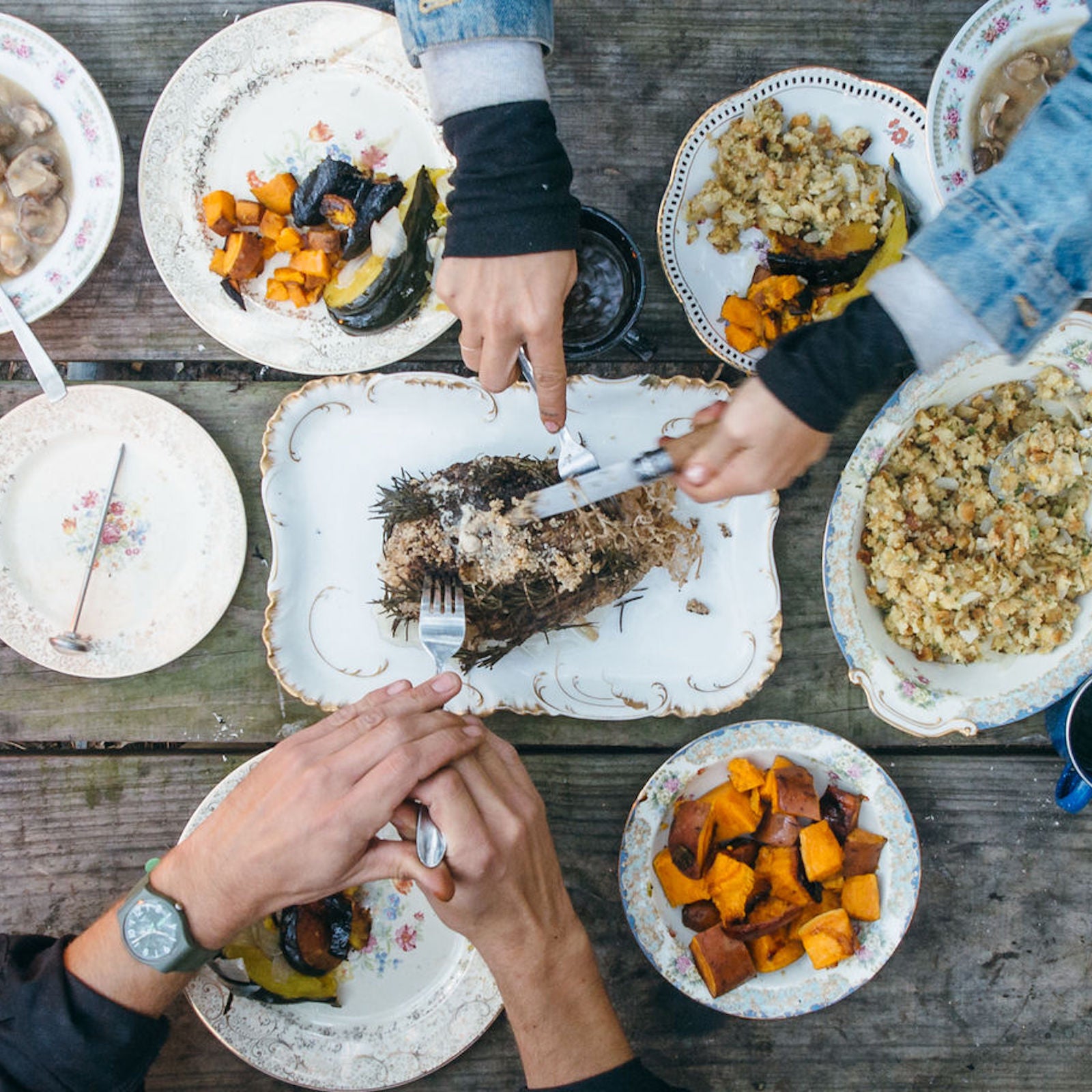There are countless ways to cut calories and maintain your training plan during the holiday season: Drink seltzer instead of a cocktail. Balance out heavy foods with salads and vegetables. Set your alarm early to get a run in before the family wakes up. But the best way to stay fit—and sane? Chill out.
“Food isn’t something you should have to think about all the time,” says , a registered dietitian and nutritionist, distance runner, and former running coach. Caplan also cofounded the , a community dedicated to educating athletes about disordered eating. For performance-driven athletes and anyone with a history of restrictive eating, the holidays can lead to a lot more than a few missed workouts or indulgent meals. Here she offers her advice for getting through the holiday season without stirring up food- or fitness-related guilt or stress.
Ditch the Restriction
“As humans, we don’t respond well to scarcity. The mentality that you must limit your intake of certain foods, or that this is your only chance to eat something, provokes a sense of deprivation. It can trigger binge eating or leave you feeling dissatisfied—like you ate carrots all night while everyone else enjoyed cookies.” Caplan’s advice to clients? “Think about the foods from this season that you’re excited about, and focus on really letting yourself savor them. Give yourself permission to eat what you like and skip what you don’t.”
Practice Flexibility
“You can be dedicated to your training without totally putting your life on hold. I’ve had a couple training cycles where I had to go out for two-hour-long runs at Christmas,” she says. “We’re always going to have things that come up, planned or not. But the holidays we can see coming, which makes them a great opportunity for an athlete to try and practice flexibility. Then, when something unexpected like a family emergency or a job change happens, you’re better prepared. You can always stand to learn a lesson in giving yourself a little slack and a little grace.”
Stop Moralizing Your Food Choices
“If someone experiences guilt on a regular basis around food, telling them to go into a party and not feel guilty about what they eat is unrealistic. But in the long term, the first thing we want to work on is not categorizing foods as good or bad. If you assign morality to a food, you assign that morality to yourself when you eat that food.” Caplan suggests taking a small step: “Go into a party and say, ‘I’m going to see all foods as equal,’ instead of saying, ‘I’m only going to eat the good, healthy food.’”
Give Your Body a Break
“Don’t underestimate the effect of outside stress—not just exercise stress—when it comes to training during the holidays, and don’t forget that diets are mentally taxing, too. If you’re traveling a lot, changing time zones, or dealing with challenging family relationships or dynamics, give yourself a break. Take the intensity or the mileage down a little bit. Just make sure you’re not overworking your body.”
Remember: It’s Just a Phase
“Try to have some flexibility around the holidays, especially if you don’t have a race coming up and you’re not in a peak-training cycle,” she says. “Your body absolutely will recalibrate itself. Many of my clients struggle with daily fluctuations, like bloating or a change in eating habits, that leave them feeling like they derailed themselves in some way. But the idea that we can’t have fluctuations in our lives or our diets is totally misguided. So is the idea that we need to immediately correct a behavior that sets us off track. That’s the problem with the diet mentality: it asks us to see every day as a clean slate that we must fill with the perfect foods and the perfect amount of exercise. Our habits and our lifestyle ebb and flow—they don’t just stay on a straight line and move forward forever.”
This interview has been edited and condensed for clarity.


